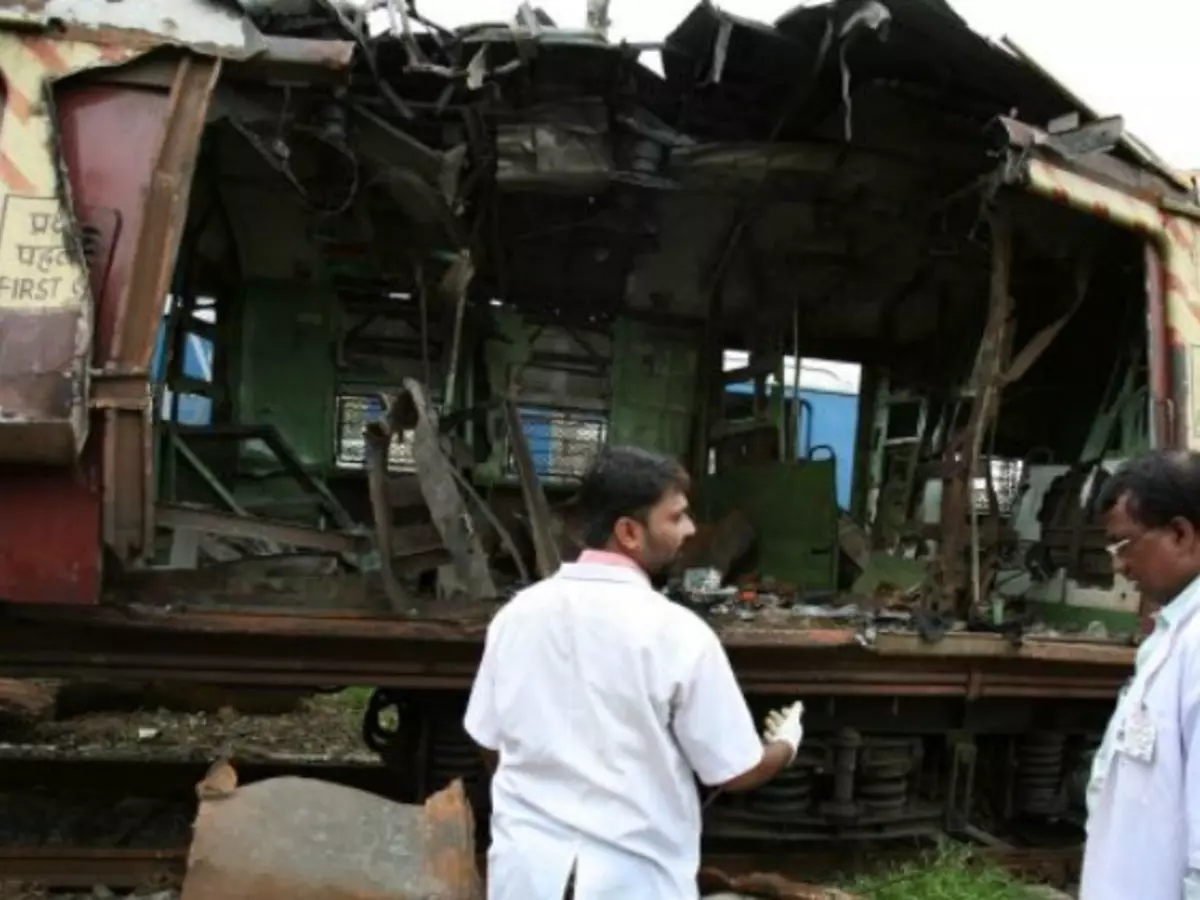189 People Were Killed On This Day In 2006 Mumbai Train Blasts, Here's Everything That Happened
All about Mumbai blasts of 2006

The serial blasts in Mumbai local trains in 2006 brought back the horror of 1993 blasts. The two separate incidents had two equally painful stories where hundreds of innocent people, out for work, lost their lives. Today is the 11th anniversary of Mumbai serial train blasts in which the financial capital of India was rocked by seven blasts within a time span of 4 minutes. A total 189 lives were lost in those attacks.

PTI
The victims of the blasts gather at various parts of the city to commemorate the loss and demand justice. So far, twelve of the culprits have been convicted by MCOCA court, while 15 of the accused are still at large.
Here are major things about 2006 serial blasts in local trains.
1. The seven blasts
It started at 6:23 pm on 11 July 2006 when two bombs exploded in two Borivli bound suburban local trains stationed at Mahim and Bandra stations.

AFP
Another bomb exploded in a Virar-bound local at Mira Road station. Within five minutes, Mumbai local network was enveloped by serial blasts that were taking place at the intervals of seconds. These blasts were first of its kind in the history of the country and it brought the financial capital of the country to a halt.
Those seven spots with timings
6.23pm: Mahim station
6.23pm: Bandra station
6.23pm: Mira Road station
6.24pm: Matunga station
6.24pm: Jogeshwari station
6.25pm: Khar subway
6.28pm: Borivli station
The plan
As per the charge sheet filed by the ATS, one accused bought 15-20 kg of RDX used in the blasts, while ammonium nitrate used was arranged locally. The terrorists used five-litre pressure cookers and quartz timer to execute the attack. Chembur was the place where bombs were assembled and then were collected at Churchgate from where the terrorists planted them in different trains.
When enquiry revolved around LeT and IM
The ATS Mumbai filed its charge sheet in November 2006, claimed that it was Lashkar-e-Toiba operation, carried out with the help of the Students¡¯ Islamic Movement of India.

AFP
But two years down the line, ATS enquiry went in another direction when crime branch arrested Mohammed Sadiq Israr Sheik in 2008. Sheikh was believed to be one of the founding members of an indigenous terror outfit Indian Mujahideen (IM). He confessed that IM was planned and carried out the blasts, but later he retracted his confession.
MCOCA court gave death penalty to five
The MOCOCA court on 2015 gives five accused- Naveed Khan, Ehtesham Siddiqui, Faisal Sheikh, Asif Khan and Kamal Ansari death penalty. The prosecution, however, had sought the death penalty for 8 of the 12 accused.
Life imprisonment
The other seven convicts who added aided with logistic support for making bombs were given life sentence. Mohammed Sajid Ansari, Mohammed Ali, Dr Tanveer Ansari, Majid Shafi, Muzzammil Shaikh, Sohail Shaikh and Zamir Shaikh ¨C were sentenced to life imprisonment in 2015.

AFP
Abdul Wahi Din Sheikh was acquitted by the court. He was booked for providing his house at Mumbai to harbour Pakistanis. He was acquitted because no evidence was found against him.
But many are still absconding
Despite 12 of the accused getting trialled and facing the Indian law, 15 accused, most of who are Pakistani nationals are still at large.
These 15 accused are: Azam Chima alias Babaji, Aslam, Hafizullah, Sabir, Abu Bakr, Kasam Ali, Ammu Jaan, Ehsanullah, Abdul Rehman and Abu Hasan- they all are Pakistani nationals. Indian nationals who are still absconding are: Rizwan Mohammed Dawrey from Wanawadi in Pune, Mohammed Rahil Shaikh, from Naya Nagar in Mira Road, Abdul Razak from Hyderbad, Sohail Shaikh from Pune, Hafiz Zuber alias Mohammed Zuber Rayeen from Madhubani in Bihar.
Status of the Punishment

AP
Since the convicts had appealed before the Bombay High Court, the confirmation of the death sentence is still pending before High Court.
MCOCA court termed it a rare case
¡°It is clear the mitigating circumstances pleaded by all accused by their nature are not sufficient to displace the aggravating circumstances. They pale into insignificance in the light of the aggravating circumstances. This case, therefore, without any doubt, fall into the category of the rarest of rare case. These accused are not like hardened criminals, in the sense the criminals whose source of livelihood is a crime. They are terrorists with a particular mindset and followers of an ideology that is adverse to society and the democratically established government,¡± the Judgement of the MCOCA court said.
